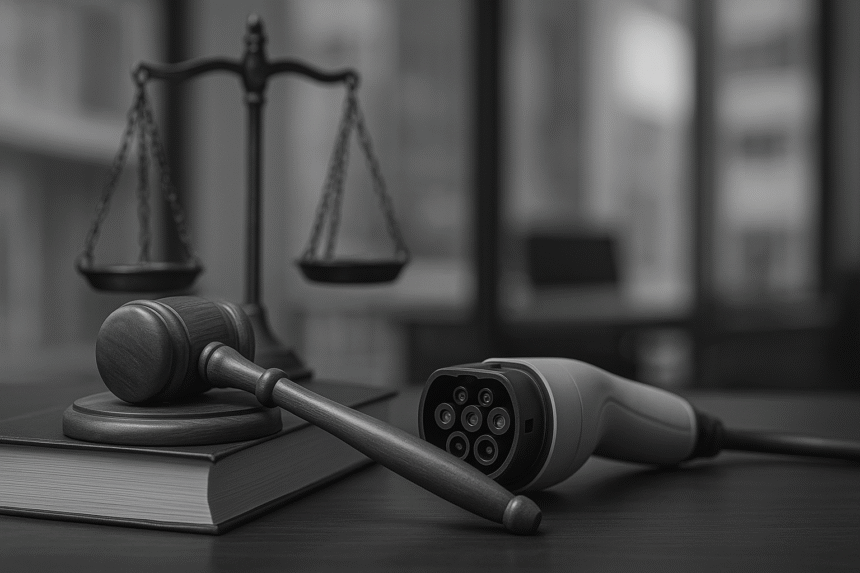What Is a CPO and Why Does It Matter Legally? (FAQ)
The term “CPO” is popping up more often in conversations about electric vehicle infrastructure, but many founders, operators, and consultants are unsure what it really means—and what the legal implications are.
This FAQ breaks down the core legal and business aspects of being a CPO (Charge Point Operator) so professionals in the EV space can avoid compliance risks, draft proper contracts, and build scalable operations.
If you’re a startup founder, commercial property owner, EV service provider, or legal advisor entering this space, this guide is for you.
Q1: What is a CPO?
A CPO, or Charge Point Operator, is an entity responsible for the installation, operation, and maintenance of electric vehicle (EV) charging stations. The CPO ensures that the chargers are functional, accessible, and in compliance with technical and regulatory standards.
CPOs may own the physical charging hardware or operate it on behalf of a property owner or investor. They are also responsible for backend systems like user authentication, billing, and data reporting.
Legal note: In many jurisdictions, operating as a CPO requires a specific license or registration with a government or utility regulator.
Q2: Do I need a license to be a CPO?
Yes, in most regulated markets, you must obtain a license or approval to operate public EV charging infrastructure. For example:
- In Dubai, CPOs must be licensed under the Dubai Electricity and Water Authority (DEWA).
- In Saudi Arabia, compliance with SASO and regulatory registration is required.
Even in unregulated environments, cities or utility providers may impose technical and safety standards.
Tip: Always verify licensing requirements before starting operations. Non-compliance can lead to shutdown orders or fines.
Q3: What contracts does a CPO typically need?
CPOs usually need several core agreements to operate smoothly:
- Site lease or access agreement (with landlords)
- Power supply agreement (with utility providers)
- EV charger supply and maintenance contracts
- End-user terms and conditions (if offering a mobile app or platform)
- Revenue-sharing agreements (for shared sites)
Bonus tip: Always include clauses for liability, force majeure, service levels, and metering responsibilities.
Q4: Who is liable if a charger fails or causes damage?
This depends on your contracts. Typically, the CPO is liable for:
- Equipment failure due to lack of maintenance
- Service disruptions caused by software errors
- Misuse of personal data collected during charging
But, the manufacturer might be liable for defects, and the landlord may be liable for infrastructure issues (e.g., faulty wiring).
Legal insight: Use a clear division of liability in your agreements, and ensure you have professional liability and product insurance.
Q5: Can a CPO subcontract part of their work?
Yes, many CPOs subcontract installation, repairs, or call center support to specialized providers. However:
- The CPO remains responsible under regulatory law
- Contracts should clearly define subcontractor roles
- There must be confidentiality, data protection, and service-level agreements in place
Mistake to avoid: Assuming the subcontractor is legally liable to the regulator or landlord—they’re not. You are.
Q6: What are common revenue models for CPOs?
CPOs typically make money through:
- Pay-per-charge fees paid by EV users
- Subscriptions for unlimited charging
- Revenue-sharing with landlords or municipalities
- Advertising or data monetization on platforms
Make sure the pricing model complies with local consumer protection laws and avoids hidden fees.
Contract tip: Be transparent in user terms and create flexible pricing clauses for long-term growth.
Q7: What is the relationship between a CPO and an e-MSP?
An e-MSP (e-Mobility Service Provider) manages the customer-facing side—apps, billing, and customer service.
- CPO = infrastructure and operations
- e-MSP = user platform and experience
Sometimes, one company plays both roles. Other times, they work together via roaming agreements.
Legal tip: When separate, they should sign a roaming agreement that defines access, payment sharing, and dispute resolution.
Q8: What should CPOs include in user-facing legal documents?
Your terms and conditions (T&Cs) for users should include:
- How charging fees are calculated
- Refund and complaint processes
- User data collection and protection (GDPR, local laws)
- Liability disclaimers
- Service availability and limitations
Privacy tip: If you track location or driving behavior, declare this clearly in your privacy policy.
Q9: Do CPOs need to collect VAT or taxes?
Yes. Charging services are typically considered taxable, and CPOs must:
- Register for VAT if thresholds are met
- Issue tax-compliant invoices to users
- Report revenues to local authorities
For cross-border or roaming services, tax treatment may vary. Consult a tax advisor to stay compliant.
Mistake to avoid: Failing to distinguish between hardware sales and service income—they may be taxed differently.
Q10: What happens if a CPO wants to exit the business?
CPOs can exit via:
- Asset sale (charging stations)
- Platform sale (software + user base)
- Merger or partnership
Important: Contracts with landlords, utility companies, and users must allow for assignment, sale, or transfer.
Exit tip: Include a clause in your agreements permitting business transfer upon notice.
Bonus Tip: Don’t Overlook Local Utility Laws
In many markets, utility regulators still treat EV infrastructure as part of the energy grid. That means your operation might be subject to utility-level audits, metering standards, or energy pricing rules.
Example: In Dubai, all public charging must be metered according to DEWA’s requirements—even if you don’t bill users directly.
Final Thoughts + Call-to-Action
Becoming a Charge Point Operator is a promising path—but it comes with serious legal obligations. Understanding your contracts, compliance status, and risk exposure is critical.
Still unsure about your CPO setup? Book a consultation to audit your agreements, compliance plan, or launch strategy. We help EV entrepreneurs stay ahead of legal risks.



Leave a Reply